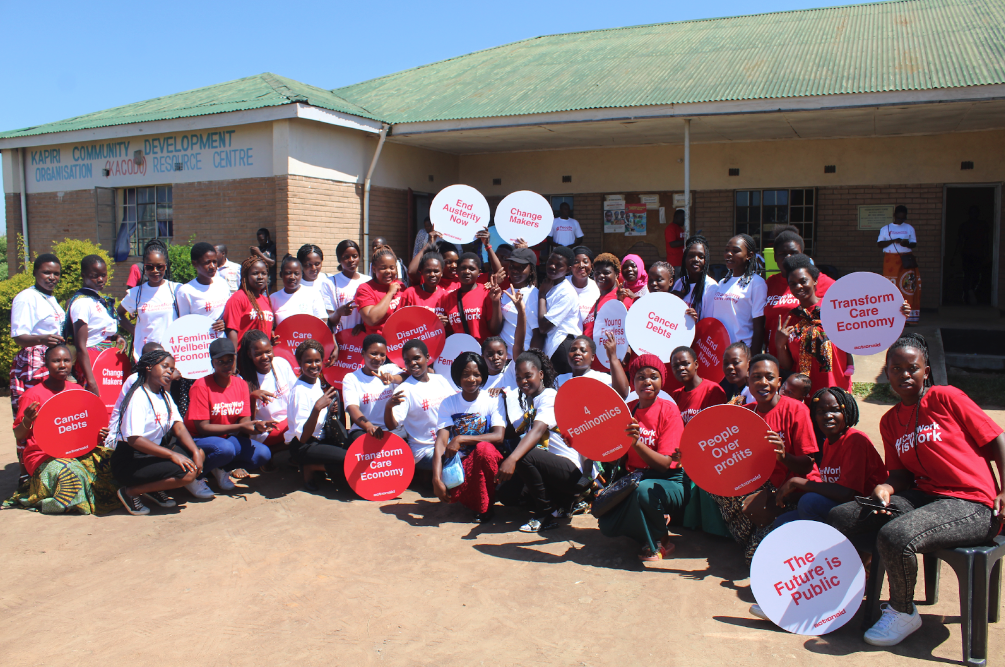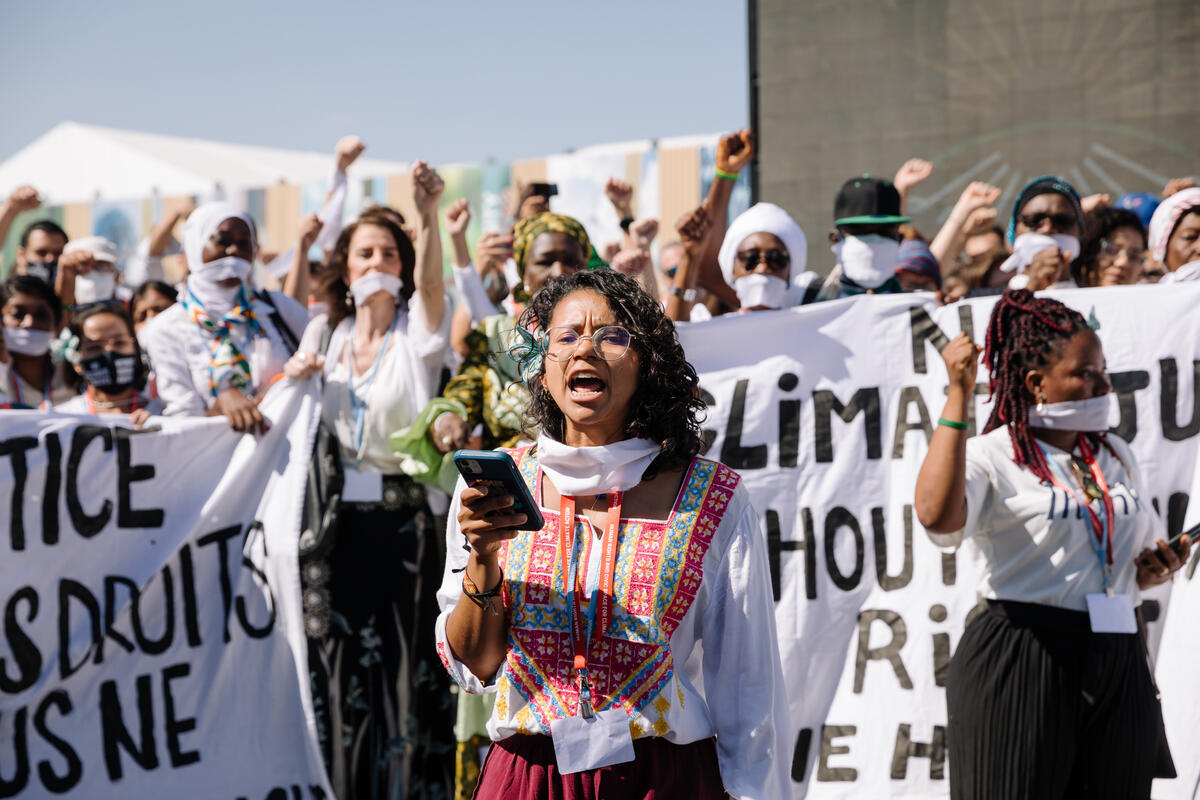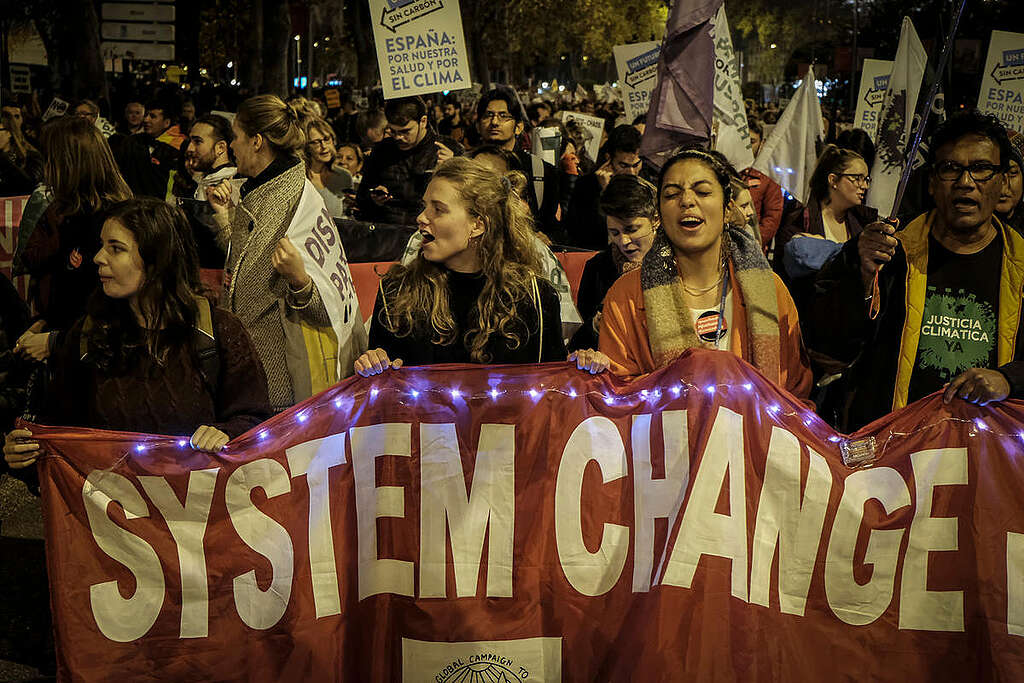Citizen Climate is an on-going series about global citizens taking action, big and small, for the sake of a healthier planet for us all.
“Imagine a world where we prioritise the well-being of people and our planet, its creatures, and future generations. A world where kindness prevails over judgement, and where understanding replaces prejudice.”

The citizen: Chikumbutso Ngosi is a Feminist Economist activist, an International Project Manager with ActionAid and a founding member of the Feminist MacroEconomic Alliance – Malawi (FEAM). Ngosi is based in Lilongwe, Malawi.
Malawi is grappling with an economic crisis that often heavily impacts women because of traditional, gendered roles. FEAM was born out of a necessity to form a network centred around women’s rights and fiscal justice. Their mission is to influence macroeconomic policies and frameworks, including debt management, to achieve economic justice for women. The Alliance advocates a Feminist Wellbeing approach to the economy, one that prioritises people and the planet over endless growth and profit.
Since 2019, FEAM has empowered over 10,000 young women and women’s rights activists by equipping them with knowledge on macro-economic policies and holding dialogues with key stakeholders to present the lived experiences of the people, while actively working together to closely follow the dealings of the Malawi government with international financial institutions.
My journey into activism and advocacy
My path into activism and advocacy was driven by a profound sense of purpose and a determination to effect positive change. Growing up in an environment where I witnessed rampant forms of abuse against women, I felt compelled to take action.
During my undergraduate studies, I studied education sociology, exploring power dynamics and the pervasive injustices woven into our society. When I started working, I started engaging in grassroots movements and collaborating with like-minded individuals, which fuelled my passion for gender justice and equality.
Over the course of 15 years, my commitment to the cause has deepened, leading me to expand my focus beyond women’s rights alone. I began to explore the intersection of gender justice, climate justice and macro-economics in order to advance women’s rights. This journey ultimately shaped my core area of passion: feminist economics and planetary care advocacy and activism.

Impact of economic growth on women and the climate crisis
The relentless pursuit of economic growth often perpetuates gender inequalities. Women face barriers in accessing education, healthcare, and economic opportunities. In the last 15 years, I’ve seen Malawian women, especially in vulnerable communities, bearing the brunt of climate-related catastrophes. During floods or droughts, they’ve lost home, crops and livelihoods. Their resilience is constantly tested as they are having to rebuild their lives amidst environmental uncertainty.
Economic expansion contributes to resource depletion, pollution, and greenhouse gas emissions. If we continue prioritising economic growth, we risk climate catastrophe, urging us to rethink our economic priorities and prioritise sustainability over relentless expansion.
UN Tax Convention and a fairer international tax system
The UN Tax Convention represents a significant step towards creating a fairer international tax system for all. Its primary goals are to ensure that developing countries benefit from foreign investment while combating tax evasion.
Key features of the convention include preventing double taxation by establishing clear rules. It aims to prevent situations where income is taxed twice—once in the investor’s home country (residence country) and again in the host country (source country). The convention favours greater taxing rights for the host country, allowing developing nations to expand their revenue base and adequately fund gender-responsive public services.

Civil society as a powerful advocacy tool
Civil society, including women’s movements and young urban women in Malawi, play a crucial role in advocating for change. They serve as a vital bridge between citizens and policymakers. Their advocacy efforts can help shape fiscal policies that are inclusive and responsive to the needs of all, as well as take care of the planet.
In Malawi, through networks like FEAM, women and young activists can actively engage in economic justice advocacy. They are able to challenge unjust fiscal policies, including austerity measures and barriers to women’s economic participation.
Women’s movements within civil society amplify these concerns from a feminist economic perspective. Young urban women lead climate justice movements, demanding their voices be heard in climate policy decisions. This kind of advocacy plays a critical role in promoting sustainable practices and ensuring fiscal and climate policies are gender-responsive. It strengthens advocacy efforts across economic justice, climate action, and gender equality, ensuring that these critical issues remain at the forefront of policy discussions and implementation.
What change would you most like to see in the world?
What I would most like to see in the world is a radical shift toward empathy and compassion. Imagine a world where we prioritise the well-being of people and our planet, its creatures, and future generations. A world where kindness prevails over judgement, and where understanding replaces prejudice.
In this world, we recognise our shared humanity, regardless of borders, beliefs, or backgrounds. It’s a world where love, respect, and cooperation guide our actions, leading to a more harmonious existence for all.

We’re asking governments to put wellbeing at the top of the agenda. Join our global movement and let’s demand wellbeing for all!
Join our global movement!